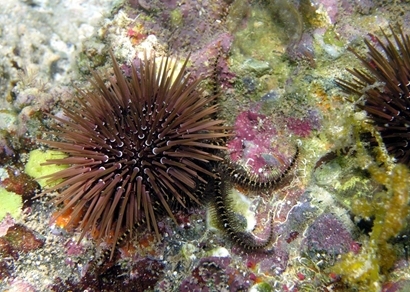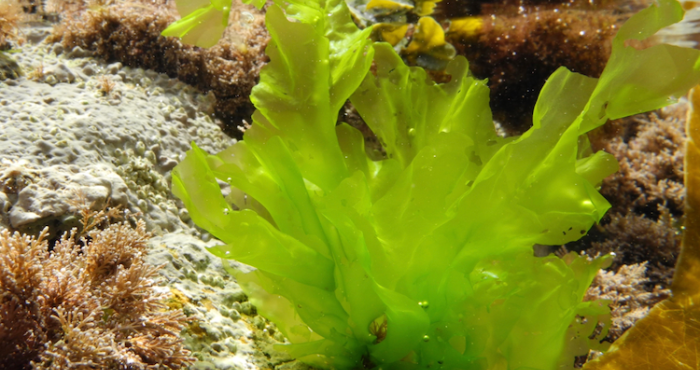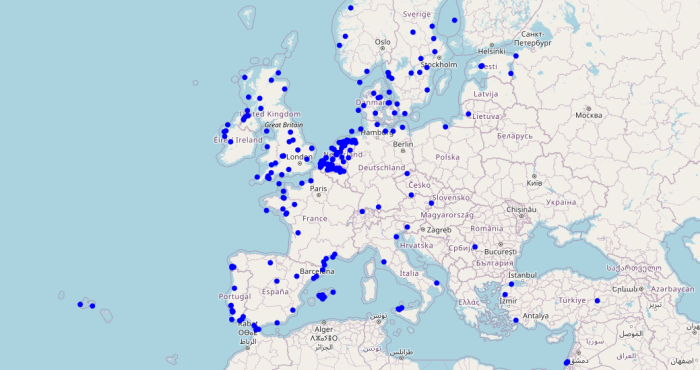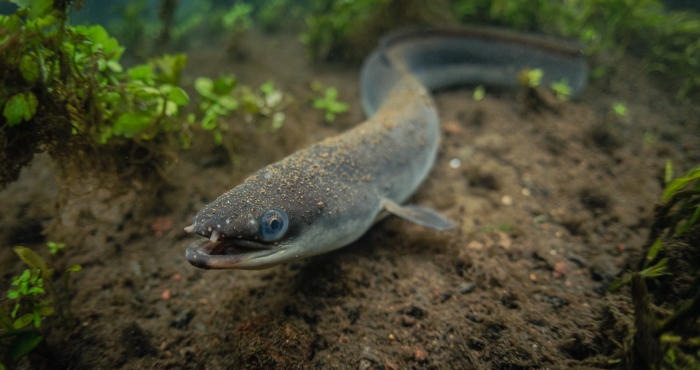How to inventory the names of all species on Earth
Marine biologists say they have demonstrated an e-solution to the management of the millions of names of animals and plants on Earth that other biologists could adopt.


Shallow rocky bottoms harbor a huge diversity of animal, plant life, algae and micro-organisms. Red Sea, Egypt. Photo: A. Kroh (NHM Vienna)
In a paper published in the prestigious journal Trends in Ecology and Evolution this week, scientists show how international collaboration around a centralised database could provide a fully global inventory and classification of all species on Earth. For over a decade, the marine biology community has demonstrated how this can work for marine species and provide a cost-efficient, expert-validated, system for reconciling the hundreds of thousands of invalid names for species.
There are millions more names for species on Earth than there are species, and numerous ways of classifying them. This creates problems for managing species important as food, pests, or needing special conservation measures, as well as detecting invasive and pathogenic species. When non-experts use databases and the literature they may miss information because they have not realised some names mean the same species, or names that refer to different species.
To date there is no complete inventory of all species names that links the valid names to their alternatives and is dynamic and continuously updated. This requires not only the capture of all the names in one database, but experts (called taxonomists) to manually reconcile names that refer to the same species and point out those names that may refer to more than one species. There is no simple one-time solution, because thousands of new species are discovered every year, and new knowledge leads to existing species names being re-classified. Thus such a register needs to be constantly updated and linked to who made the decisions and supporting literature. Thus a long-term affordable business model is needed.
Now the marine biology community believes it has the answer.
For over a decade, 500 experts from 41 countries have collaborated in a centralised online database called the World Register of Marine Species (WoRMS). In this, half a million names have been flagged as representing 240,000 different species. The names are classified and linked to published literature and a range of other information on the species, such as if it is an invasive species.
The content is collectively owned by the WoRMS Editorial Board (not individuals or institutions) and hosted in a database created by the Flanders Marine Institute’s Data Centre in Belgium. The editors are based all over the world and edit the content online, with updates every minute. Editors volunteer their time as a scientific service (as many do for scientific journals). Being on the Editorial Board is by invitation and is prestigious, and means users can easily contact the world experts as needed.
The founding Chair of WoRMS, Mark Costello asks “why not apply this proven model of individual and institutional collaboration, governance, and data management to provide a fully global inventory and classification of all species, that is continuously updated?”.
Andreas Kroh emphasised that we do not suggest such a global solution should directly build on the WoRMS infrastructure. Rather, “our experience in the management of intellectual property, social community, and a centralised dynamic database could be replicated by other communities of taxonomists”.
According to the current Chair of WoRMS, Tammy Horton, “the solution to this, and perhaps other problems in science, lies in greater collaboration within the scientific community”.
The publication
Costello MJ, Horton T, Kroh A. (2018). Sustainable biodiversity databasing: international, collaborative, dynamic, centralised. Trends in Ecology and Evolution - in press. [download]
Press contacts
Professor Dr Mark J. Costello
Institute of Marine Science, University of Auckland, Auckland 1142, New Zealand
Office +64 9 923 6826 | Mobile +64-21-186 9878 (please text in advance to identify your number) | Email m.costello@auckland.ac.nz | Skype: markcostello | www.marine.auckland.ac.nz/uoa/mark-costello | oceansofbiodiversity.auckland.ac.nz
Dr Tammy Horton
National Oceanography Centre, University of Southampton Waterfront Campus, European Way, Southampton, SO14 3ZH
Office: +44 2380 596 352 | Mobile: +44 7795 804 581 | Email tammy.horton@noc.ac.uk | Skype (appointment needed) tammy_horton | noc.ac.uk/people/txh
Dr Andreas Kroh
Natural History Museum Vienna, Burgring 7, 1010 Vienna, Austria
Office +43-1-52177-576 | Mobile +43-676-9559-373 | Email andreas.kroh@nhm-wien.ac.at | Skype (appointment needed) kroh.andreas | www.nhm-wien.ac.at/kroh.html



